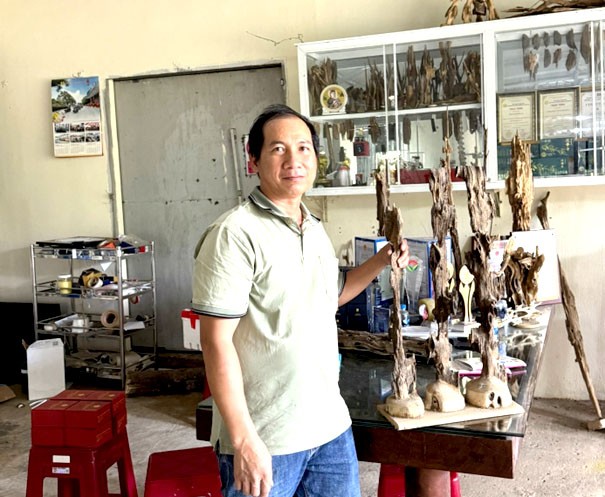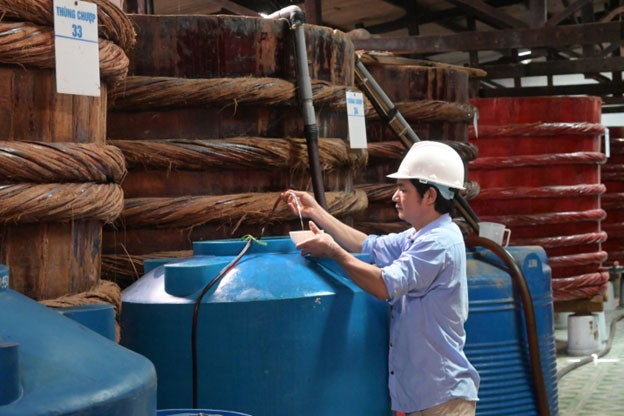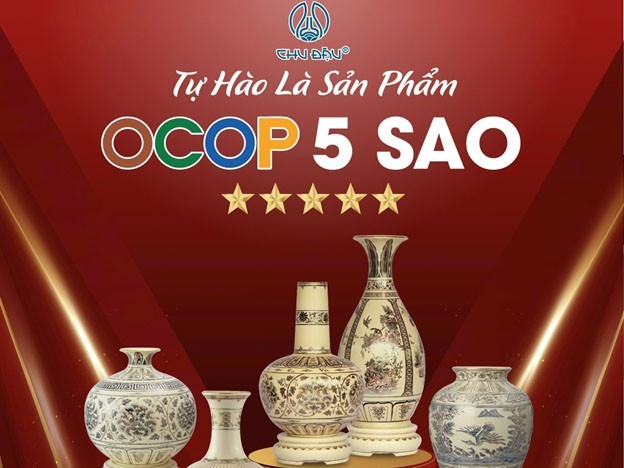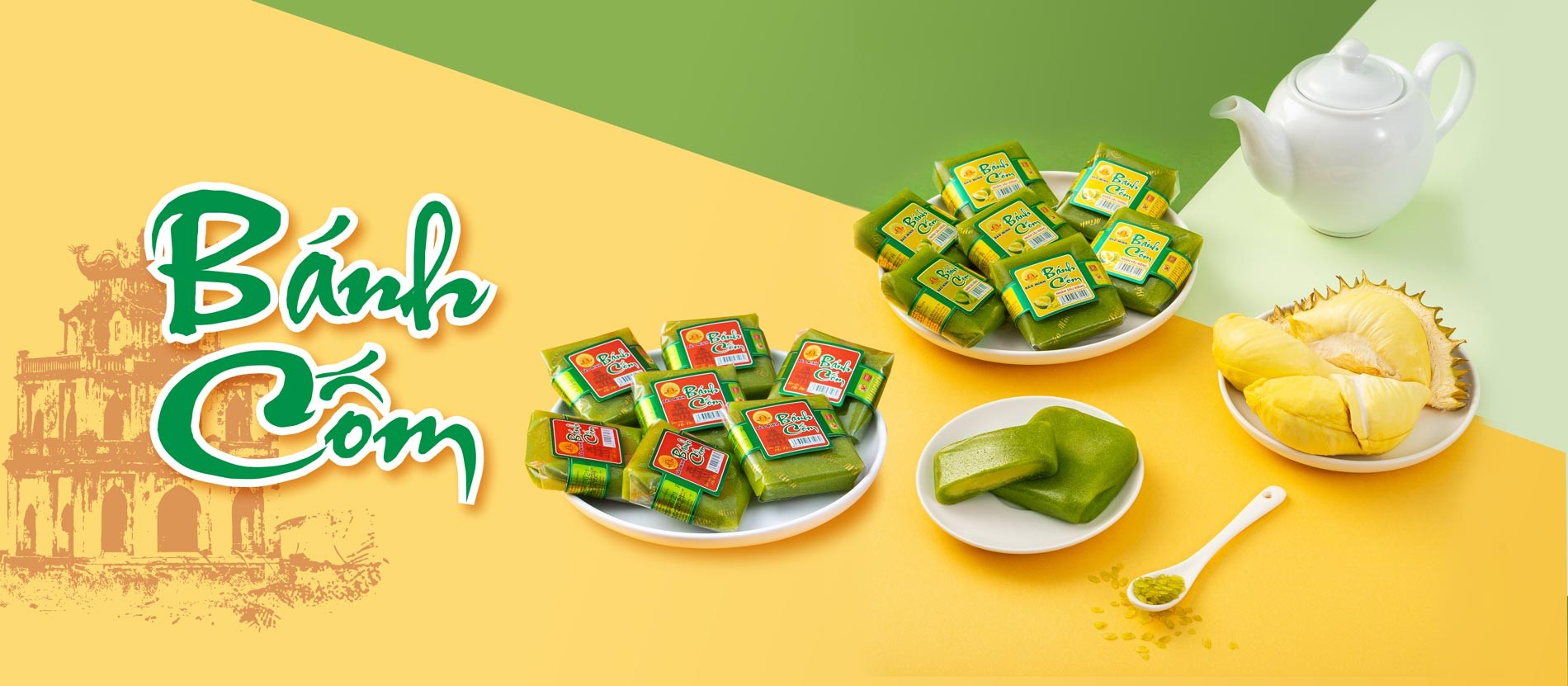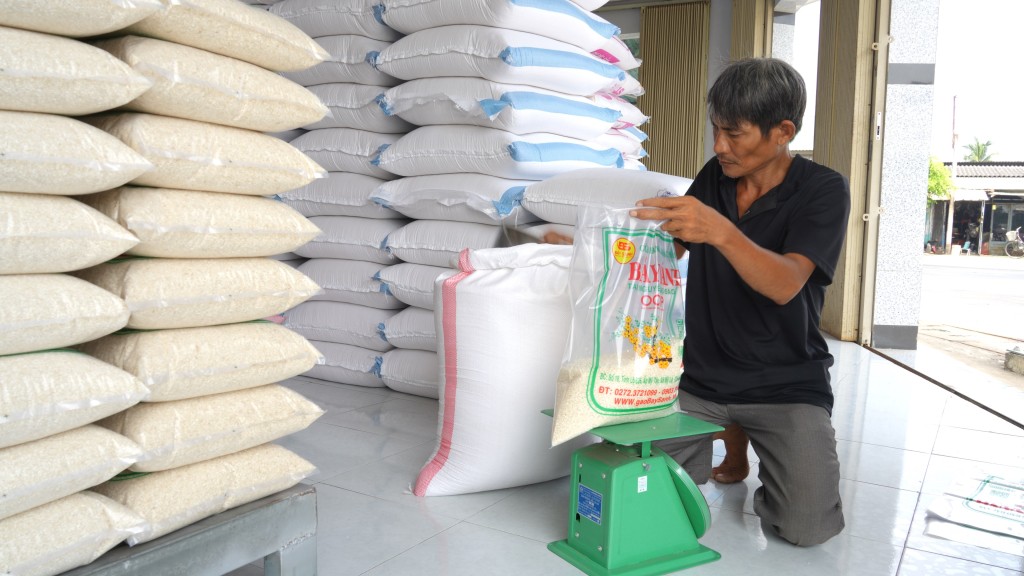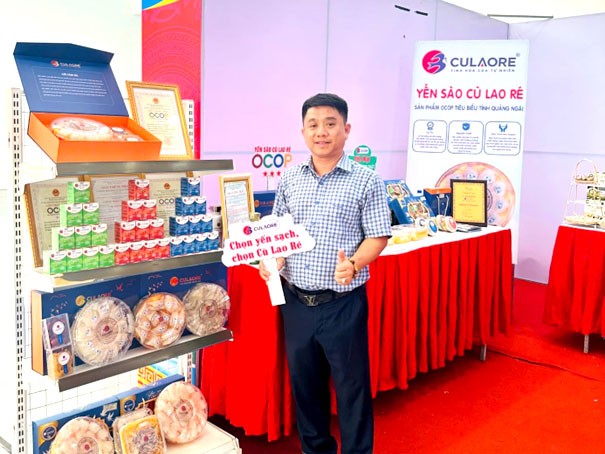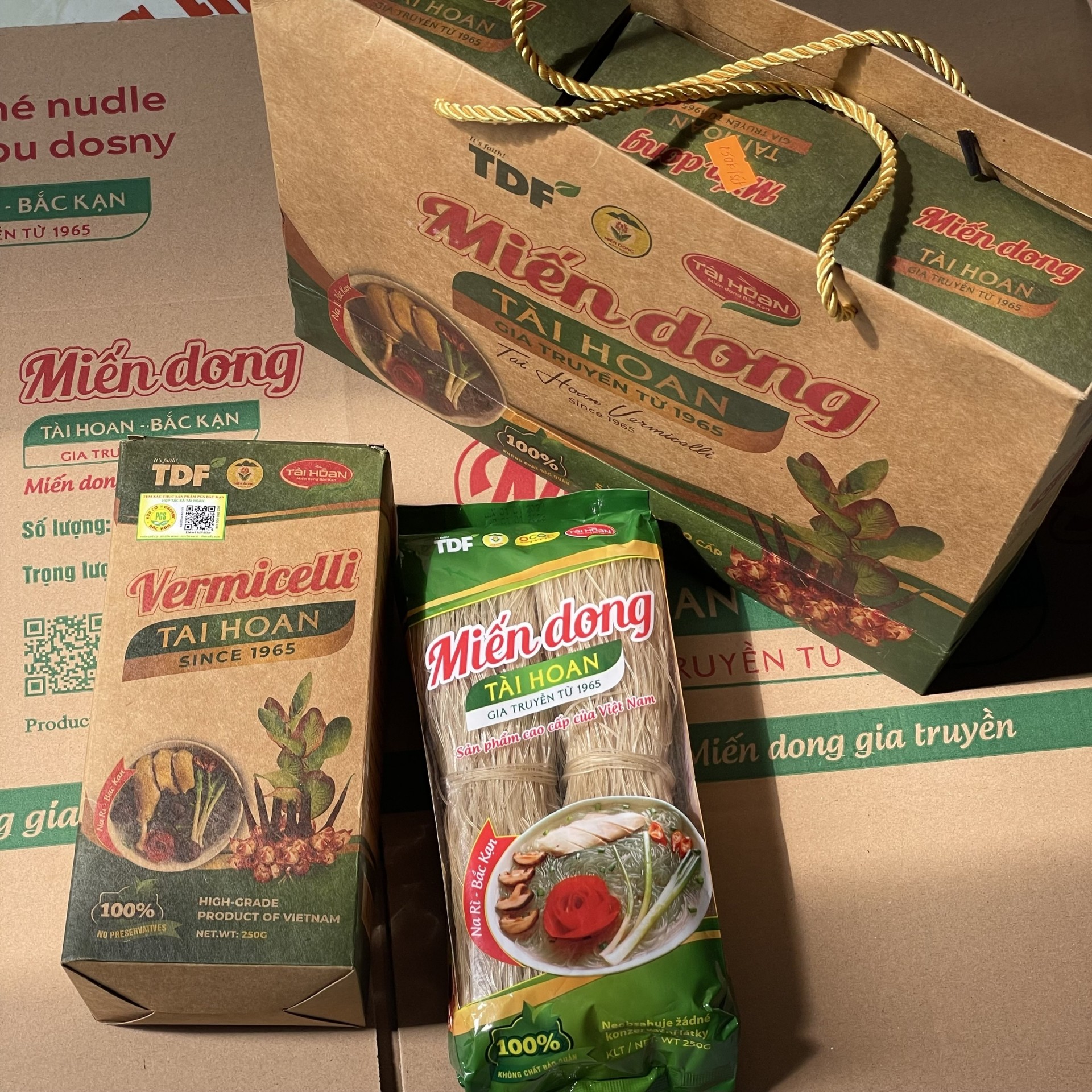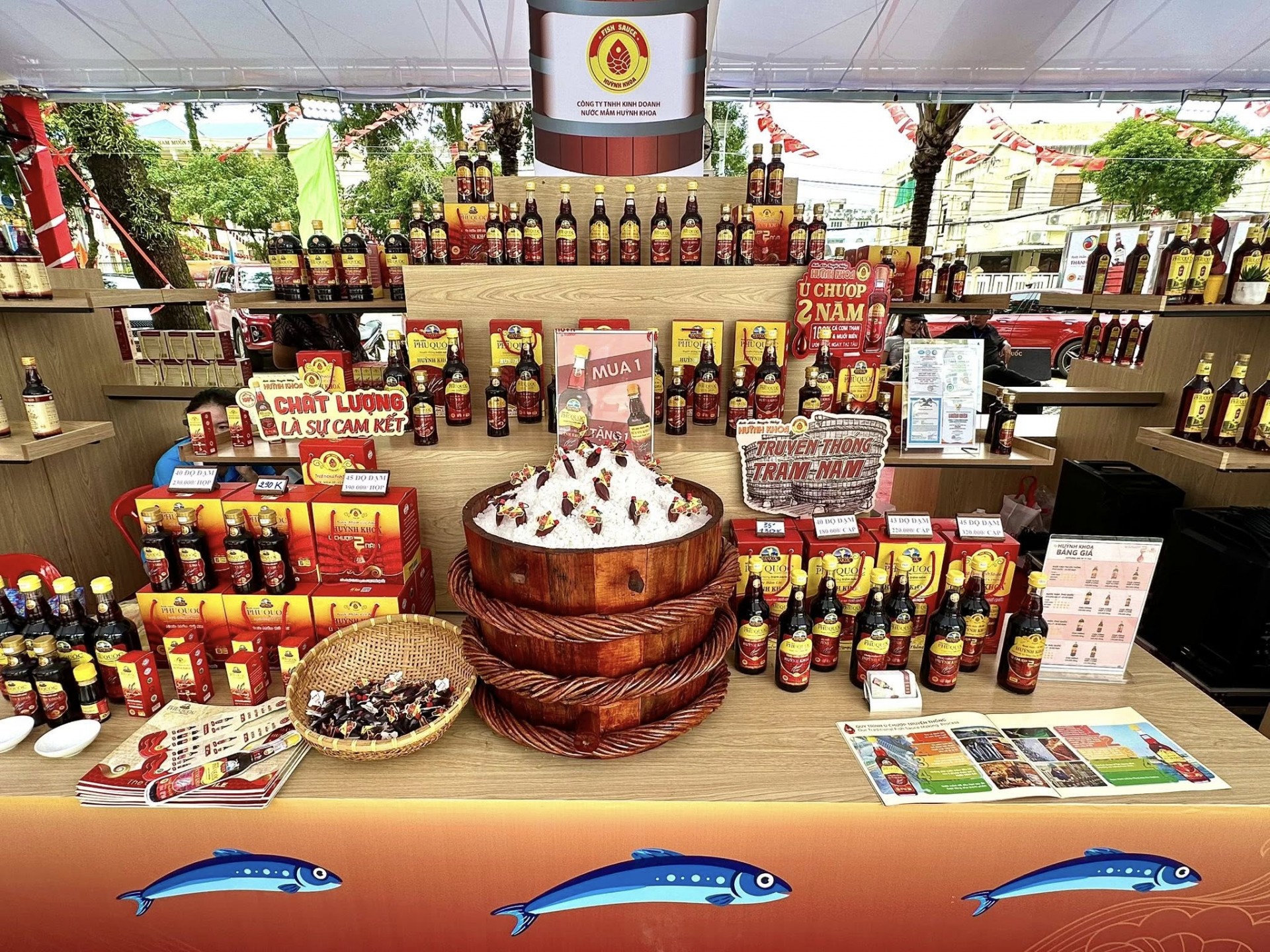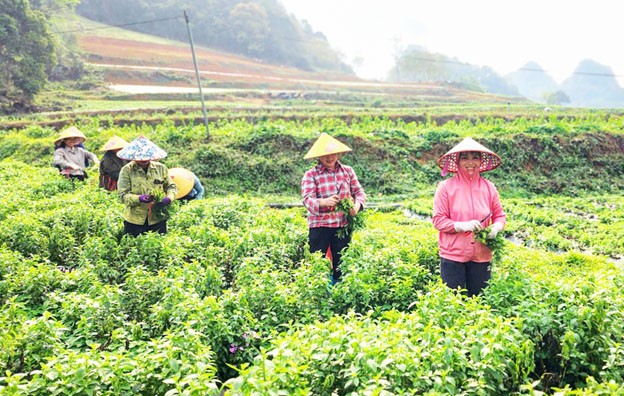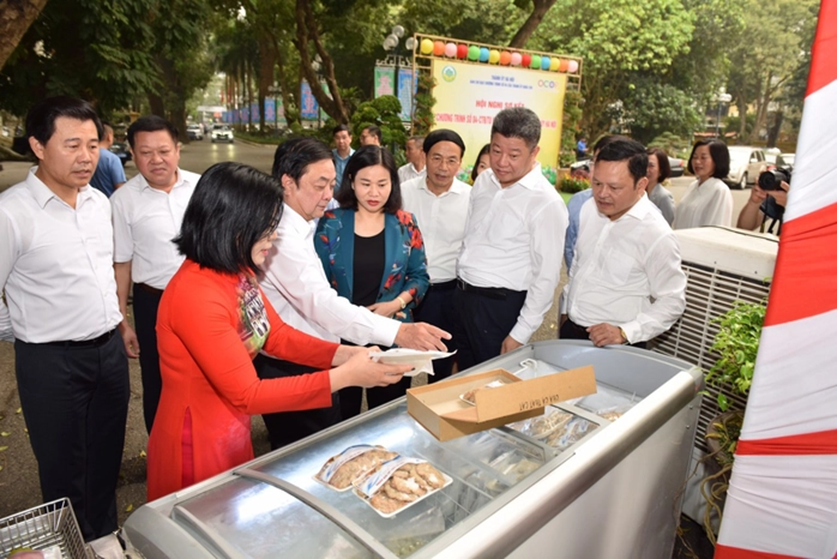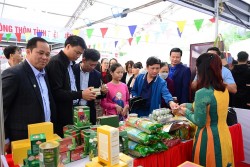Advantages of product development OCOP Hanoi from cultural capital and indigenous knowledge
Every year, when lotus season comes, the family of Mr. and Mrs. Ngo Van Xiem - Luu Thi Hien (Quang An ward, Tay Ho district) rushes to harvest and marinate lotus tea. Ms. Luu Thi Hien said: "Living in Bach Diep lotus growing area, with the famous lotus tea marinating profession in Tay Ho, my family submitted the lotus marinated tea product to the OCOP evaluation and ranking contest and was recognized as 4 stars. To marinate a pound of delicious tea, there must be 1,500 Bach Diep lotus flowers combined with Thai Nguyen dried tea buds that are harvested "1 shrimp, 2 cloves" over a full 21 days with 7 times of lotus rice flavoring and 7 times of drying. The more times the tea is marinated, the more the lotus scent blends and the longer it lasts. For standard lotus tea, the tea must be green. At first, it has an acrid taste, then it has a sweet taste and a gentle lotus scent, wafting in the mouth. Since joining the OCOP Program, our family's Hien Xiem brand of lotus tea has become more known to customers.
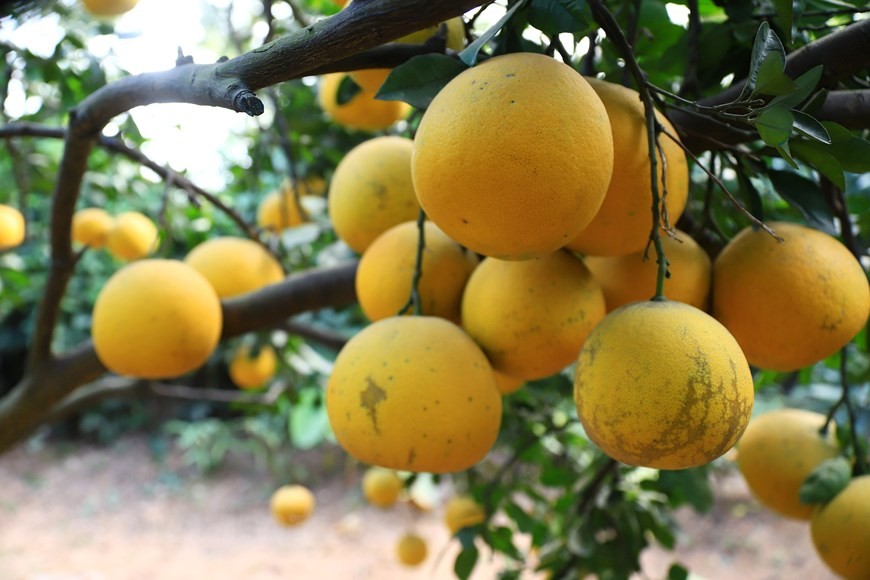 |
| Thuong Mo commune’s yellow shrimp pomelo product was evaluated and ranked “3 stars” |
Also in Tay Ho district, Ms. Do Thu Thuy, business household Do The Gia (Xuan La ward) brought moon cake products to participate in the OCOP Program. Ms. Thuy said: “Once upon a time, my great-grandfather and grandfather made many types of cakes and opened a shop on Hanoi’s Old Quarter. My father and the aunts and uncles in the family are still following in their father’s footsteps to keep the profession. Personally, I chose to develop a branch of my family’s products, which is green rice and products from green rice, such as: Rice cakes, sticky rice cakes, and green rice cakes. I hope my family’s specialty is not only a delicious gift, but also has the meaning of promoting Hanoi culture.”
According to Deputy Director of Hanoi Department of Agriculture and Rural Development Nguyen Dinh Hoa, Hanoi is “the land of hundreds of jobs”. Hanoi’s traditional products and traditional crafts are crystallized from the talent of the workers and the thousands of generations of cultural traditions of the ancient land, the culture of Doai and Son Nam Thuong town. In addition, Hanoi also has 1,136 active agricultural cooperatives, 1,695 farms, 149 maintained and developed chain links, and more than 164 high-tech application models. Hanoi also has more than 5,000 agricultural products labeled with QR code traceability, along with hundreds of famous products such as Son Tay Mia chicken, Soc Son yellow flower sticky rice, Dai Thanh longan (National Dang), Thuong Mo yellow shrimp pomelo (Dan Phuong)... These are typical and typical products that have been exploited in Hanoi’s OCOP Program. These specialties are “starred” by OCOP to both increase economic value and help promote the regional culture of the capital city with thousands of years of civilization.
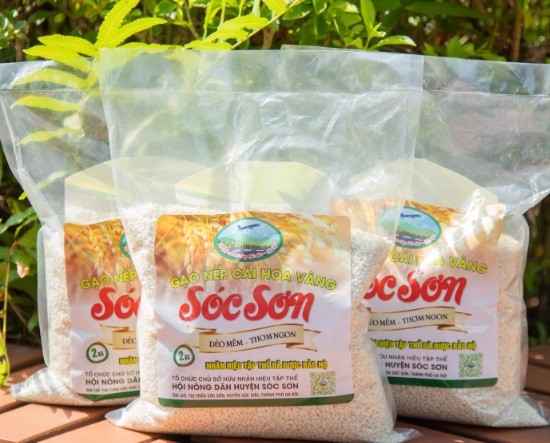 |
| Soc Son district successfully built yellow flower sticky rice into a regional specialty. |
Promote exploitation of advantages
As one of the successful localities in exploiting indigenous cultural values to develop products, Vice Chairman of Tay Ho District People’s Committee Nguyen Thanh Tinh shared: “Tay Ho always focuses on and determines the OCOP Program as An important solution for economic development, improving people’s income and quality of life. Every year, the district issues specific plans, assigning detailed tasks to each department, committee, and People’s Committee of the wards on OCOP product development. To date, Tay Ho has had more than 40 OCOP products certified by the city. OCOP products are present in all 8/8 wards of the district with typical products such as Tu Lien ornamental kumquats, Nhat Tan peach blossoms, Quang Ba lotus sweet soup, Phu Thuong sticky rice, moon cakes, spring rolls, and green rice cakes. ..”.
Vice Chairman of Ba Vi District People’s Committee Nguyen Duc Anh said that Ba Vi district has 7 mountainous communes with great potential for developing medicinal plants. Statistics show that the Ba Vi mountain region has more than 500 species of medicinal herbs, many of which are used as medicine by the Dao and Muong people. In Ba Vi commune alone, there are 3 villages: Hop Son, Hop Nhat, Yen Son that are recognized as traditional medicine villages with about 80% of households participating. Among them, Tan Vien Son Southern Pharmaceutical Cooperative has successfully built 5 4-star OCOP products. “From that advantage, the district will continue to support people in collecting and preserving good remedies of the Ba Vi ethnic people to preserve and develop medicinal materials; standardize products through the OCOP Program” - Mr. Duc Anh said.
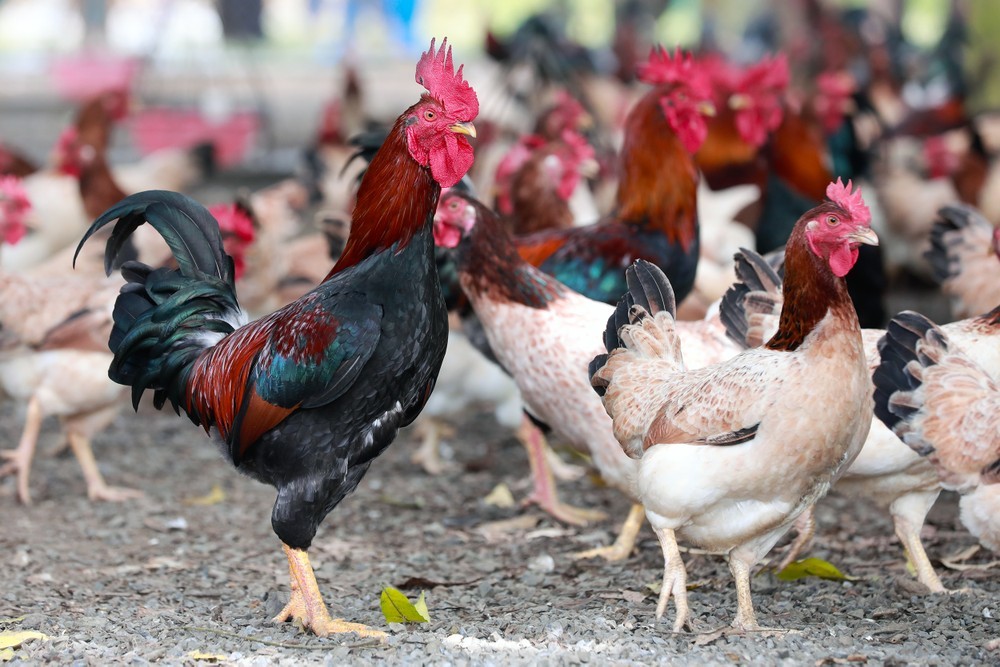 |
| To preserve and develop Sugarcane Chicken farming, Hanoi Department of Agriculture and Rural Development has coordinated with local authorities to build the brand “Son Tay Sugarcane Chicken”, gradually improving the quality of products offered. market. |
With the support of governments at all levels when participating in the OCOP Program, entities in Hanoi have devoted a lot of effort to research and develop products from local advantages. Meritorious Artist Phan Thi Thuan (Phung Xa commune, My Duc district) said: “From the lotus plant, I learned to draw silk to make yarn. However, in the beginning, the productivity is very low and it takes a lot of effort. From 2018 to 2020, I tested many models to improve productivity and silk quality. To have good silk materials, it is necessary to perfect the lotus growing process and apply science and technology to the production process. With diligence and meticulousness, durable, beautiful, and unique lotus silk sheets were born; Among them, the lotus silk scarf product has been evaluated and ranked as 5-star OCOP potential.
According to Mr. Ngo Van Ngon, Deputy Chief of the New Rural Construction Program Coordination Office in Hanoi, each OCOP product is a “cultural messenger” of a specific locality, expressing traditions, customs and living habits of the people of the Capital. Therefore, it is necessary to fully exploit the elements that represent the crystallized indigenous cultural values in OCOP products to introduce to tourists. To preserve and promote cultural values in OCOP products, the Hanoi New Rural Construction Program Coordination Office has supported production entities with endemic products, characteristics, and strengths to invest in these products. production to increase the quantity, quality, and spread of products to consumers; Focus on propagating the cultural value of the product.
Recently, in parallel with product evaluation and classification, Hanoi city has organized many events to promote and introduce OCOP products, helping businesses and units connect OCOP products with customers. OCOP product introduction and sales points, supermarkets, stores... in Hanoi city; Helps businesses orient development strategies, ensuring compliance with market needs and practices. With a population of more than 10 million people and frequent visits by many tourists, the Hanoi market has great potential to promote consumption of agricultural products and OCOP products.
Appreciating Hanoi’s exploitation of indigenous cultural values and local strengths to develop OCOP products, Minister of Agriculture and Rural Development Le Minh Hoan said that Hanoi is on the right track. Each OCOP product integrates multiple values, containing pride in indigenous cultural values - an important factor that distinguishes the value of OCOP products of each region. In the coming time, production and business entities need to innovate packaging design, identify OCOP products, improve added value and quality associated with exploiting indigenous cultural values, creating indigenous cultural values. color for the product.
Tin mới hơn





Tin khác






